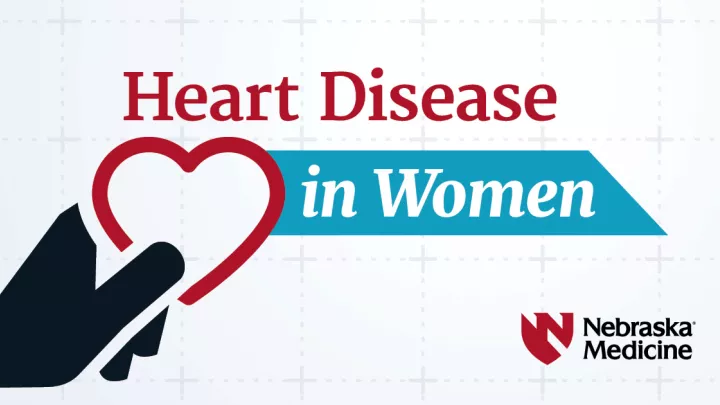17 risk factors for heart disease in women – and what you can do

Heart disease is the leading cause of death in women in the United States.
In the last two decades, diagnosis and treatment of heart disease in women have improved. Yet it is still the cause of 1 in 5 female deaths in the U.S.
The first step in heart disease prevention is to know the signs and symptoms of a heart attack. Women often report different symptoms than men.
In this article, we'll cover eight risk factors unique to women, which aren't as well known as the following nine traditional risk factors.
Heart disease is, to a great extent, preventable. You can improve many of the 17 risk factors covered below. Good nutrition and regular exercise go a long way towards reducing your heart disease risk.
Heart attack symptoms in women
Women's heart attack symptoms may be different than those considered typical in men. In addition to chest pain or chest pressure, women's symptoms of a heart attack may include any of the following:
- Extreme fatigue
- Shortness of breath
- Nausea or vomiting
- Lightheadedness or dizziness
- Neck, jaw, shoulder or upper back discomfort
If you have any of the following symptoms, call 911 immediately.
Unique heart disease risk factors for women
Do any of these unique risk factors apply to you?
- Adverse pregnancy outcomes, including miscarriage, stillbirth, preeclampsia, eclampsia, placental abruption, low birth rate and gestational diabetes
- Autoimmune conditions
- Premature menopause
- Polycystic ovary syndrome (PCOS)
- Mental disorders, including depression and PTSD
- Chest wall radiation
- Cardiotoxic chemotherapy
- Chronic kidney disease
Adverse pregnancy outcomes: Miscarriage, stillbirth, preeclampsia, eclampsia, placental abruption, low birth rate and gestational diabetes are all adverse pregnancy outcomes. Occurring in 10% to 20% of pregnancies, these outcomes are associated with a 1.8 to 4 times greater risk of future heart and vascular disease.
Autoimmune conditions: Women are more likely to have autoimmune conditions, systemic lupus erythematosus (SLE) and rheumatoid arthritis. These women have a significantly higher risk of dying from heart disease.
Premature menopause: Menopause before age 40 increases a woman's risk of heart disease.
Polycystic ovarian syndrome: According to the Centers for Disease Control and Prevention (CDC), PCOS can increase a woman's heart disease risk, especially with age. Although not formally recognized as a cardiovascular risk-enhancing factor, international guidelines include PCOS.
Mental disorders: Depression is twice as common in women than in men and is a risk factor for heart attack and cardiac death. In the U.S., post-traumatic stress disorder (PTSD) affects 9.7% of women and 3.6% of men. Women with PTSD had a 3 times higher risk of ischemic heart disease than those without PTSD.
What to do: If you have any of these unique risk factors, call 800.922.0000 to schedule a cardiovascular risk screening.
Traditional heart disease risk factors
These traditional risk factors for heart disease and stroke may affect women to a greater extent than men.
9. Age
10. High blood pressure
11. Smoking
12. High cholesterol and triglycerides
13. Diabetes and metabolic syndrome
14. Obesity
15. Physical inactivity
16. Poor diet
17. Family history of premature heart disease
Age: When women reach menopause, their risk of heart disease becomes equal to men. This is when estrogen levels decrease and women lose their natural protection. If you are a woman 50 and older, heart disease should be on your radar.
What to do: While you can't control your age, you can control your lifestyle. Follow the below guidelines on diet, exercise and smoking.
High blood pressure: Blood pressure is a significant risk factor for stroke, which is the cause of death for 6.2% of U.S. women, and heart attack. Most people don't recognize symptoms of high blood pressure. Therefore, routine screening is always recommended, even for healthy, young individuals with no symptoms. You can drop your blood pressure numbers by 5% to 10% with lifestyle changes alone.
What to do: Find out what's considered high blood pressure.
Smoking: The fact is, no number of cigarettes is good for your heart. Less than five cigarettes a day can increase your risk for heart attack or stroke by 40%. Two packs a day increases your risk by 900%.
Smoking cessation programs are very successful – with excellent counseling and multiple treatment options, including medications and nicotine-replacement methods.
The good news is your risk of heart attack and stroke declines 15% to 30% as soon as you quit.
What to do: Call 800.922.0000 to get help to quit smoking. Ask for the Nicotine Dependence Clinic.
High cholesterol and triglycerides: Your risk for heart disease increases as your total cholesterol rises. The amounts of two types of cholesterol also affect your risk. LDL, also known as the bad cholesterol, parks itself in your arteries causing inflammation and blockages. HDL, or the commonly called good cholesterol, helps move the bad cholesterol to the liver where it can be cleaned out. A combination of medications, diet and exercise can help you maintain a healthy balance of cholesterol levels. High triglycerides can also increase your risk for heart disease.
You may also benefit from statin therapy. Statin therapy lowers cholesterol and may help reduce atherosclerosis or plaque build-up in the arteries.
What to do: Add colorful fruits, vegetables and healthy fats to your diet. If you have high cholesterol, discuss statin and other newer therapies with your doctor.
Diabetes and metabolic syndrome: About 15 million U.S. women have diabetes. Diabetes doubles your risk of stroke or heart attack. This risk is higher for women with diabetes than men with diabetes.
Similarly, about 27 million U.S. women have metabolic syndrome. Metabolic syndrome also significantly increases your risk of heart disease and stroke.
What to do: Be sure to take all medications per your doctor's instructions. For women with type 2 diabetes or metabolic syndrome, healthy nutrition and regular exercise are very important to manage the disease
Obesity: Obesity affects your entire body – blood sugar, diabetes, cholesterol and high pressure. Certain types of cancer are also more common in people with obesity. Taking action will improve your overall health and reduce heart disease risk.
What to do: Lifestyle is key. Nutrition, exercise and stress management are the tools. Call 402.559.9500 for supportive help from our weight-loss medical experts.
Physical inactivity: Research says the health of those who don't exercise is similar or worse to those with a major disease like hypertension, diabetes or even being a smoker.
The best type of exercise is something that fits into your lifestyle and is something you enjoy and can maintain long term. While any type of exercise is better than no exercise at all, a high level of aerobic exercise that gets your heart rate up is best. If you're normally a walker, to get your heart rate up this would mean walking at a fast pace at which it is difficult to maintain a conversation.
What to do: Shoot for a minimum of 150 minutes of moderate exercise, or 75 minutes of high intensity exercise, each week.
Poor diet: It's easy and cheap to eat processed foods that are high in salt and sugar. But in the long term, your heart health will suffer – as well as your mood. Boost your mood by limiting sugary, flour-based and processed foods.
What to do: Look for heart-healthy foods like lean chicken, oily fish like salmon, vegetables, olive oil, fruits, unsalted nuts and whole grains.
Family history of premature heart disease: Has your mother had heart disease before the age of 65 or your father before the age of 55? If you answered yes to either question, you should be screened at least 10 years before heart disease was diagnosed in your family member.
What to do: Call 800.922.0000 to schedule a heart and vascular risk assessment.
Heart disease prevention
If you have one or more of these 17 risk factors, we can help. Heart disease in women can be more severe than in men, but it's largely a preventable disease.
The cardiologists at the Heart Disease Prevention Program help you put the lifestyle changes in place that will keep your heart healthy. To take a big first step towards lowering your risk, make an appointment at 800.922.0000.







